
Bhagavad Gita in Management Studies
In the dynamic field of contemporary management, leaders are continuously searching for novel approaches and enduring ideas to effectively handle the intricacies of internal and external relationships. Amid the multitude of management ideas and approaches, the Bhagavad Gita is a rich source of wisdom that cuts across time and cultural boundaries. The Bhagavad Gita, also known as the "Song of the Divine," is a timeless scripture that was written thousands of years ago. It offers profound insights into many aspects of life, including ethical conduct, leadership, decision-making, and conflict resolution—all of which are essential for effective management in today's corporate environment.
The Bhagavad Gita essentially depicts a conversation between Prince Arjuna and Lord Krishna on the Kurukshetra battlefield. Krishna is Arjuna's charioteer and spiritual guru. He comes to him for advice while he is having an existential crisis and a moral dilemma. The Gita reveals a wealth of managerial lessons via their dialogue that hold true now just as much as they did thousands of years ago.
A fundamental principle of the Bhagavad Gita is the idea of "dharma," which is commonly translated as "duty" or "righteousness." Regarding management, dharma highlights the significance of coordinating one's behavior with moral values and a greater good. Leaders who follow their dharma create an environment of trust, an atmosphere of integrity, and a feeling of purpose in their companies. The Gita also offers significant insights on the nature of decision-making and leadership. It highlights the significance of concentration, clarity, and composure in the face of difficulties—qualities that are essential for effective leadership in the turbulent and uncertain business climate of today. Leaders may make strategic decisions that are in line with their beliefs and vision by developing self-awareness and mindfulness.
In summary, the Bhagavad Gita offers significant insights into ethical behavior, leadership, decision-making, and conflict resolution, making it a timeless manual for contemporary management. Adopting the Gita's principles enables executives to create businesses that are not only profitable but also sustainable and socially conscious by navigating the intricacies of the business world with insight, integrity, and compassion.
Day 1

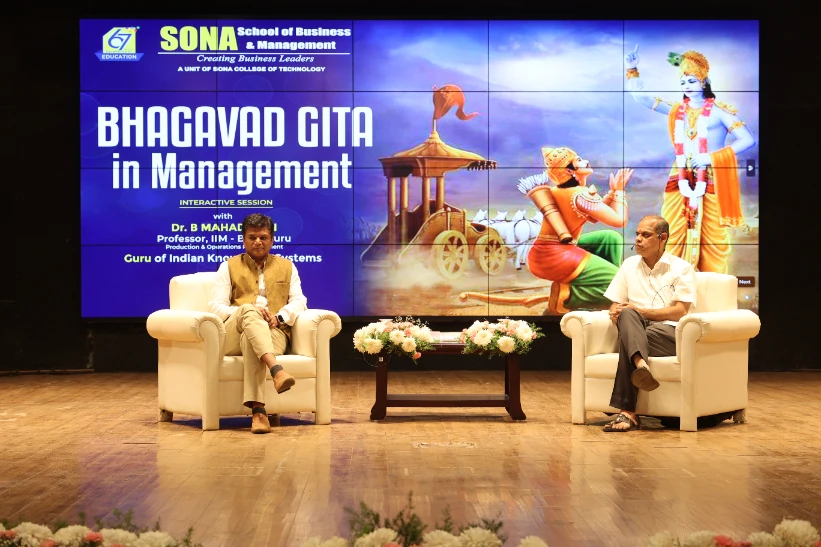
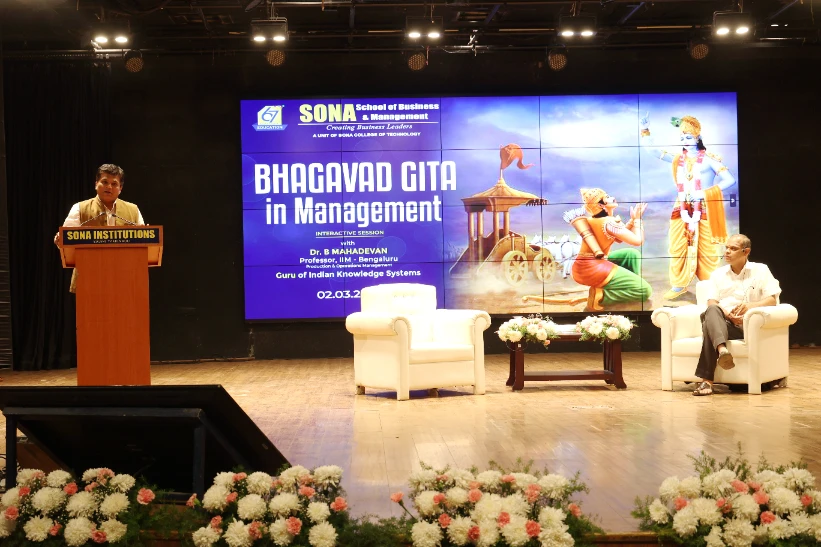
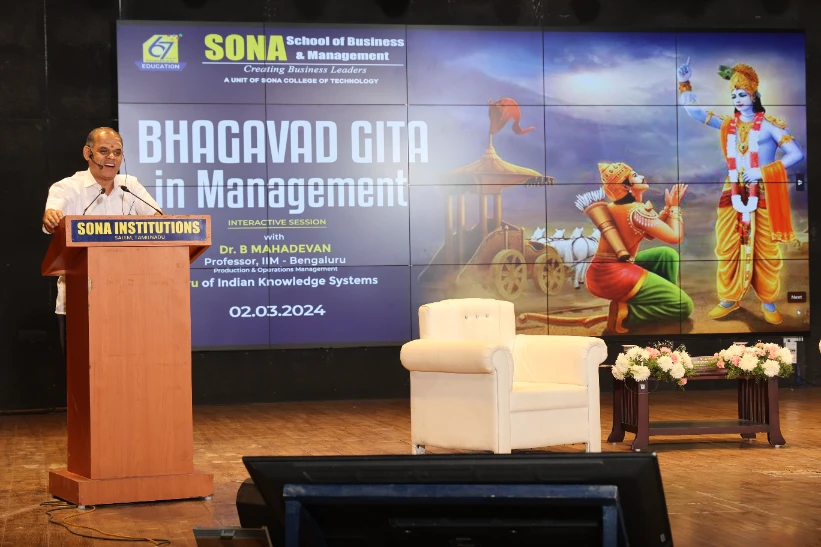

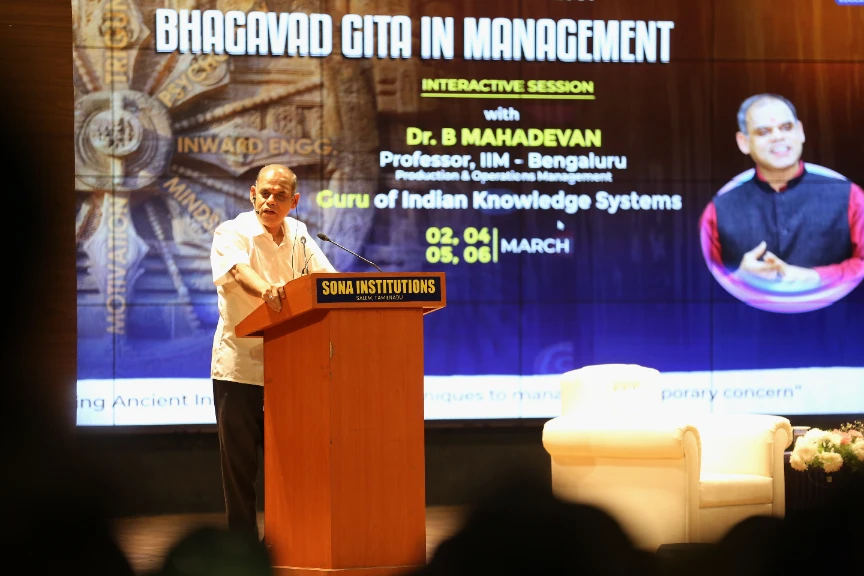

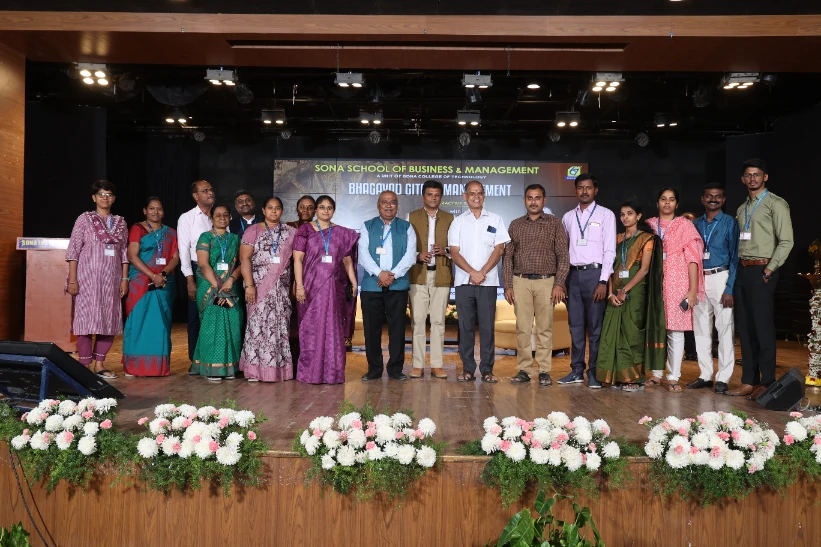
Day 2
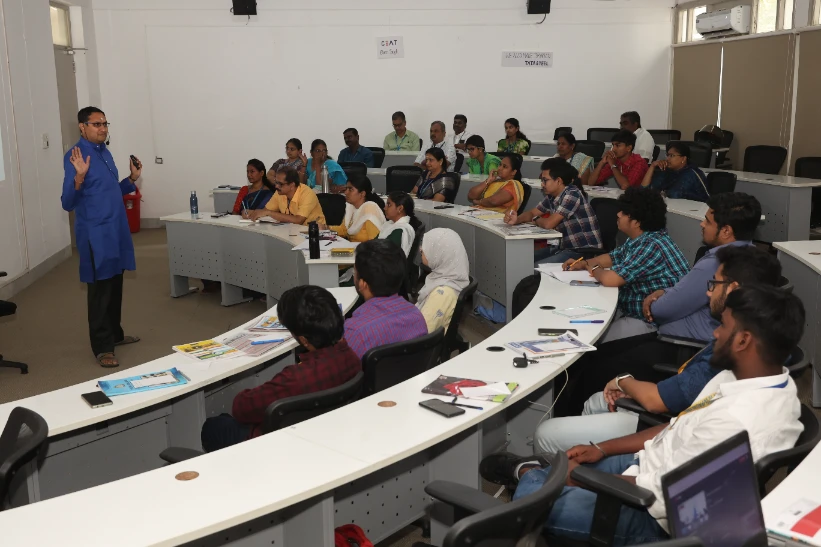

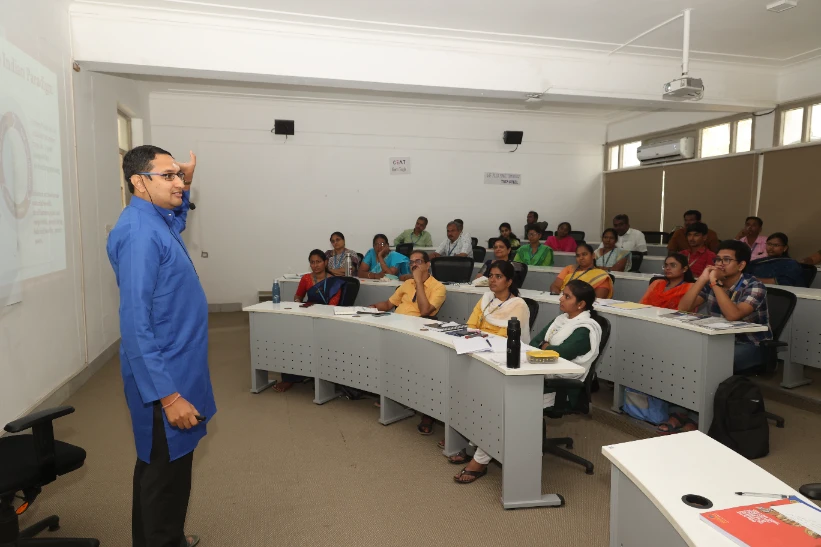
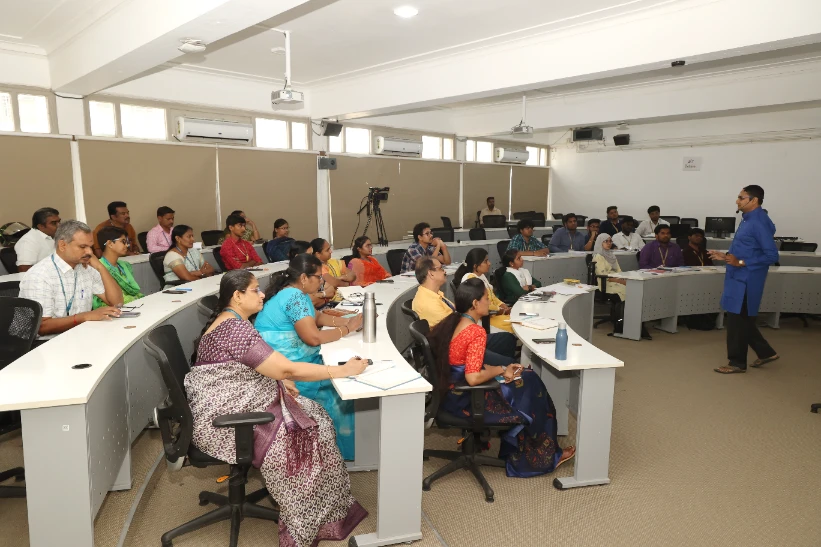
Press release
